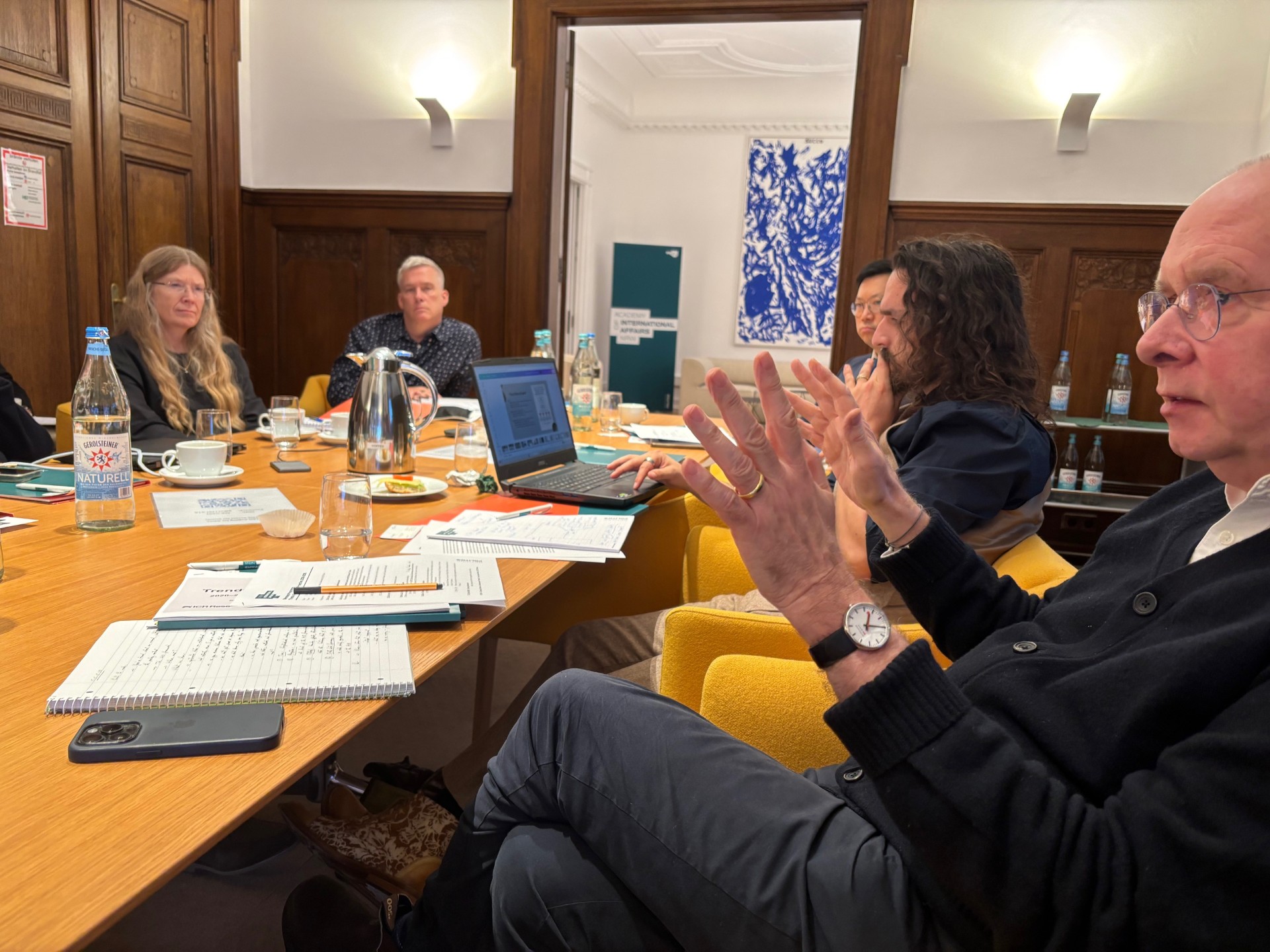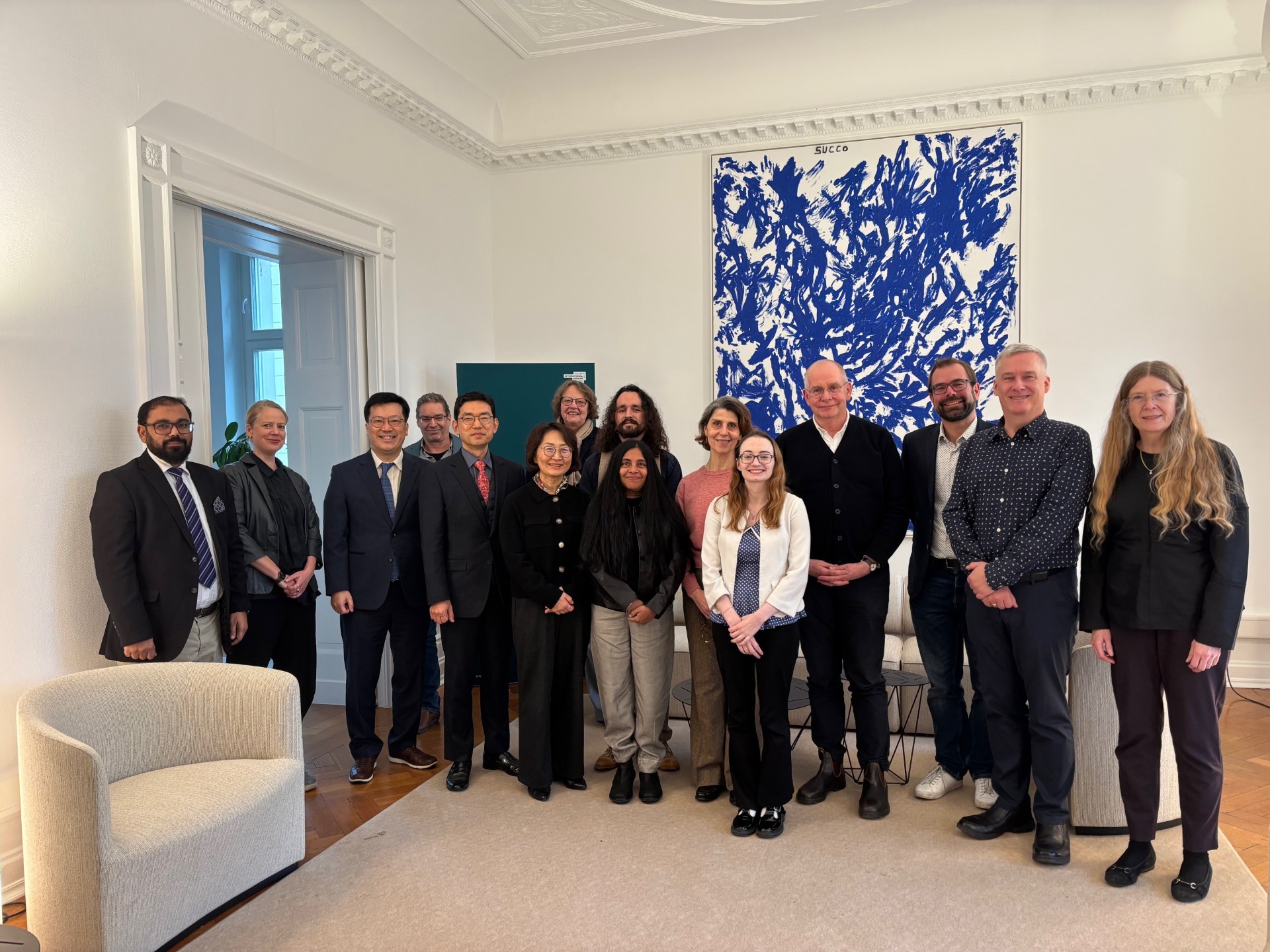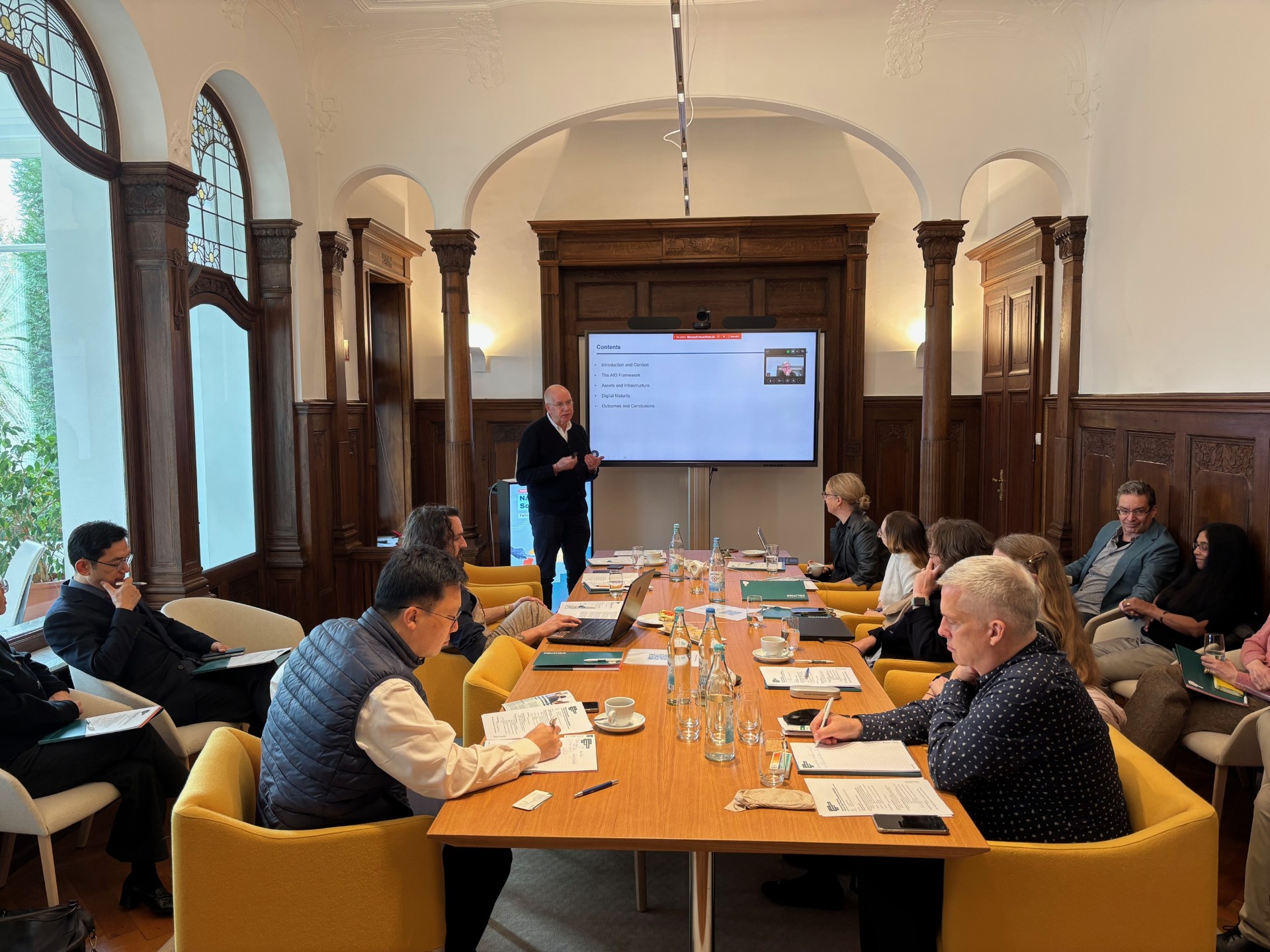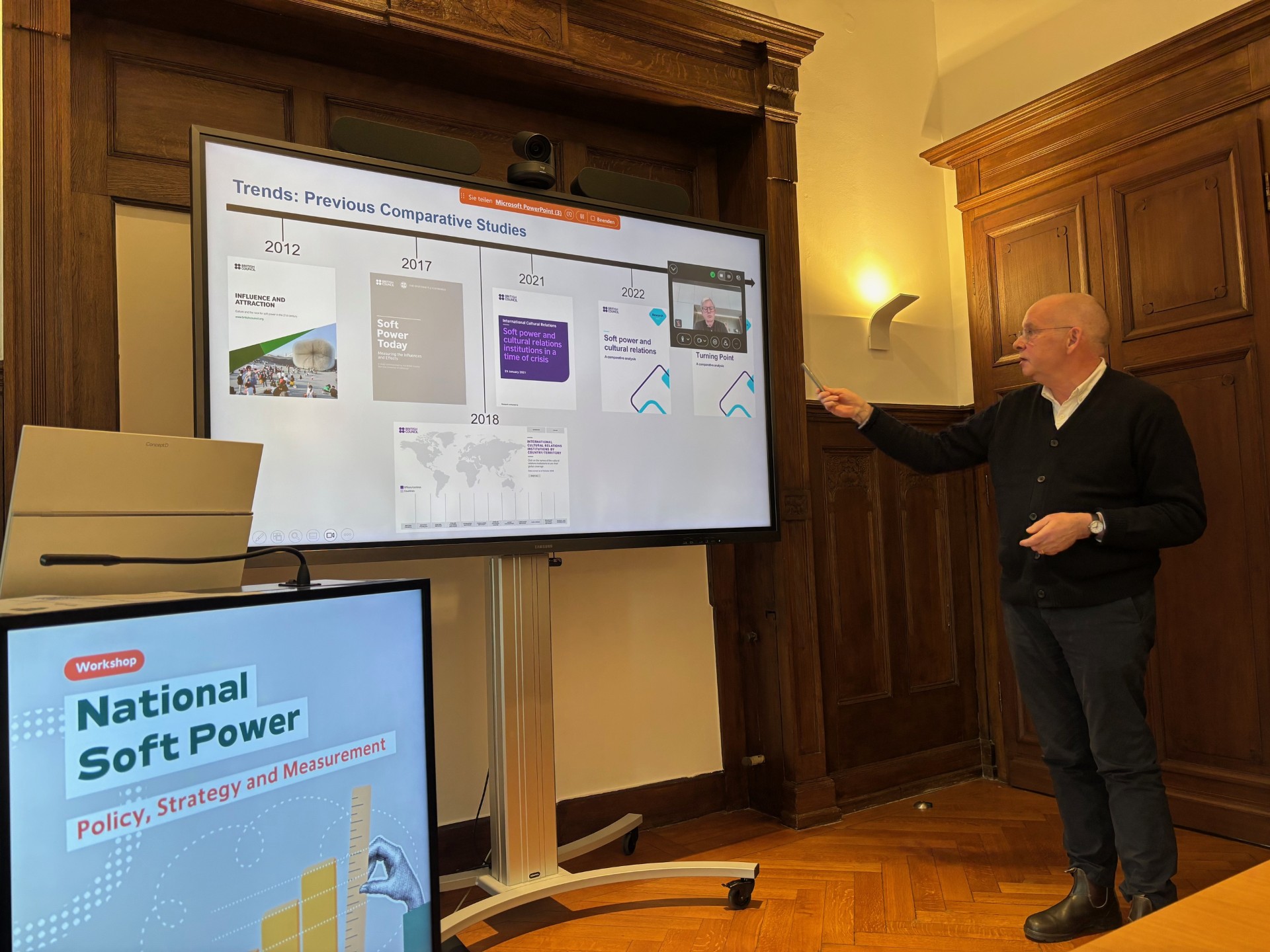Policy, Strategy and Measurement
The Fellow Workshop organized by AIA Fellow Stuart MacDonald focused on the term and concept of ‘soft power’, which was popularized by the recently deceased American political scientist Joseph Nye in his 1990 book ‘Bound to Lead: The Changing Nature of American Power’ and is familiar to anyone who has ever studied political science. One criticism of the concept of soft power, understood as the ability to co-opt rather than coerce, has always been that it is vague and difficult to measure empirically. Stuart has now presented a comparative study in over 25 countries on behalf of the British Council, in which soft power is measured.
The key findings and methodological principles of this study were the focus of the workshop. Mona Lotten, Head of Soft Power Research and Insight at the British Council, opened the workshop with a fundamental reflection on the significance of soft power and why academic expertise in this area is very important to the British Council. While Stuart and Andrew Murray presented their findings, Evie Aspinall, Director of the British Foreign Policy Group Soft Power, placed British soft power in the context of the United Kingdom’s foreign policy in general. Jake van Clief from the University of Edinburgh and founder of the AI company EDUBA explained the methodological basis for measuring soft power, focusing in particular on the possibilities offered by AI instruments. Ilan Manor from Ben Gurion University examined digitalization and its potential for the use of soft power instruments. Katja Freistein commented in detail on the study results and referred to further literature on the subject.
The discussions showed that the success of soft power depends less on the amount of resources than on strategic coherence – in other words, on the interaction between political goals, institutions and programs. Germany achieves high efficiency through the interaction of the Goethe-Institut, DAAD and GIZ, but has had to restructure since 2024 due to budget cuts. South Korea shows with the Korean Wave that cultural industry exports can effectively reinforce government investment. Major powers such as the USA, China and France are significantly reducing their soft power budgets.
The bottom line is that the weakening of established soft power powers on the one hand and the rise of medium-sized players on the other has fundamentally changed the global soft power landscape, creating new strategic opportunities.
Info:
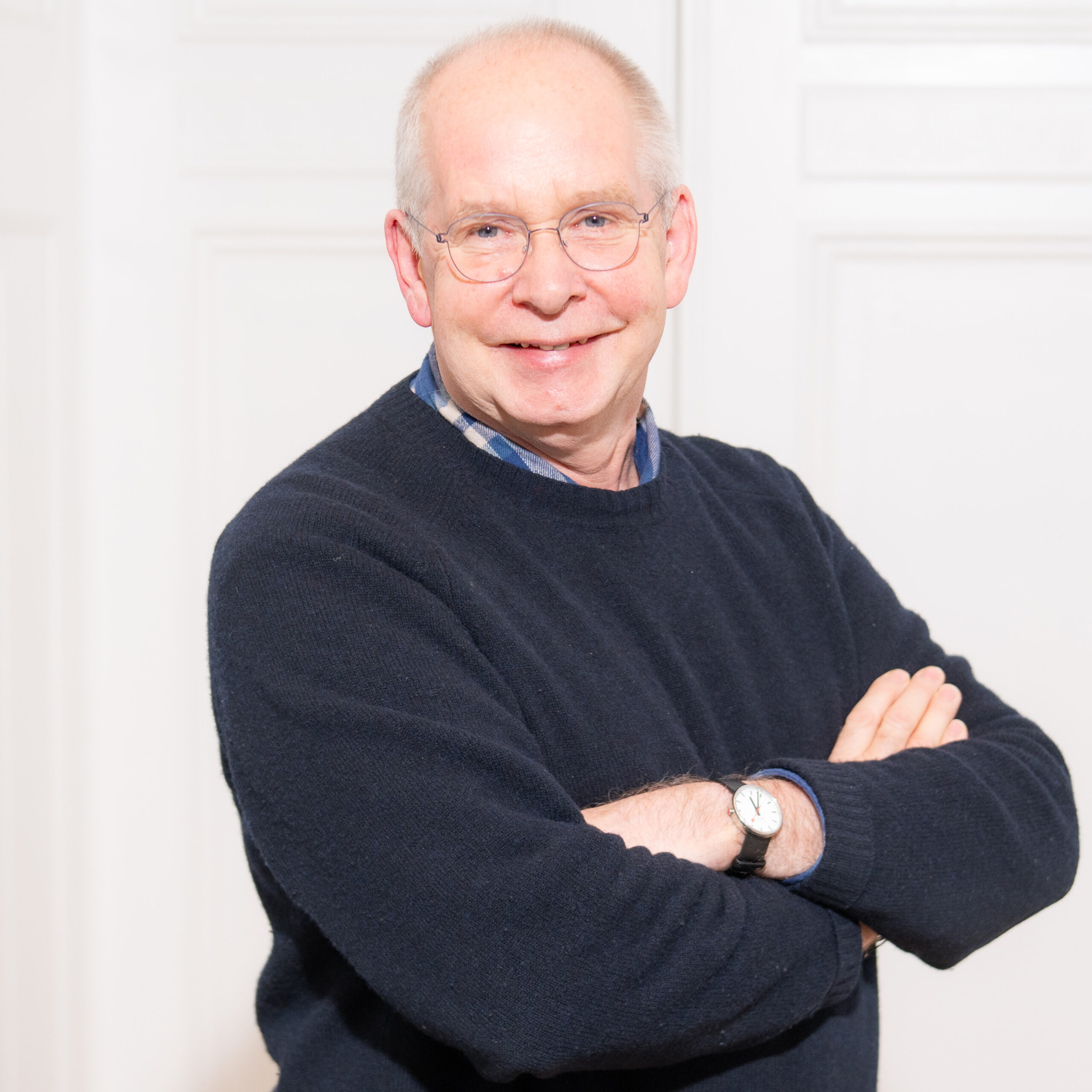
Benjamin Westhoff
Stuart MacDonald
Fellow AIA NRW
